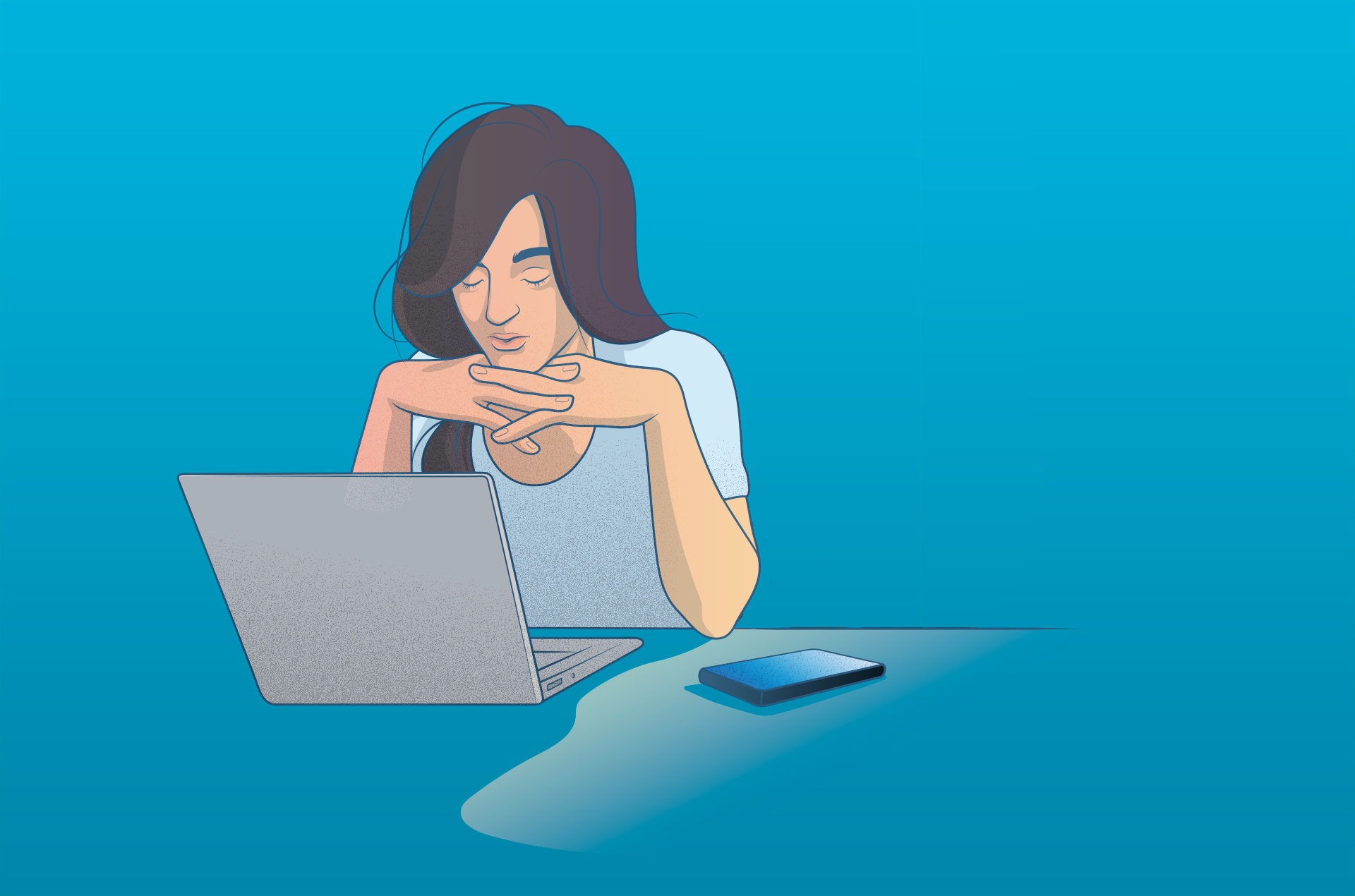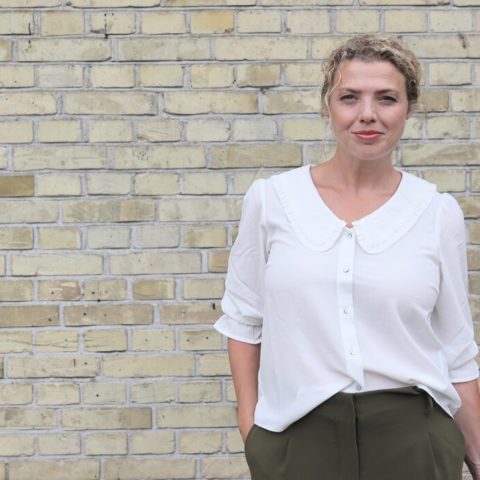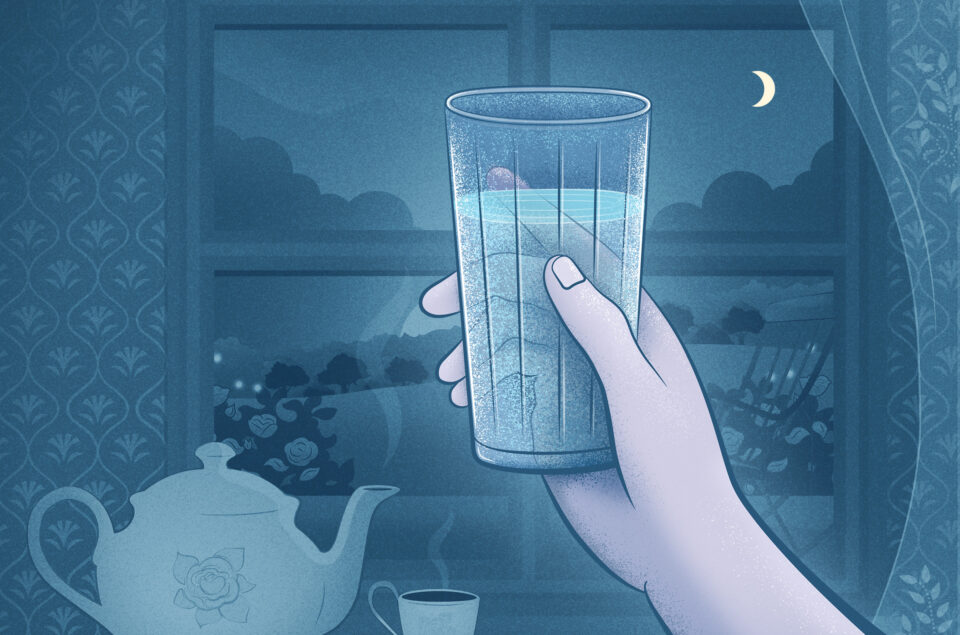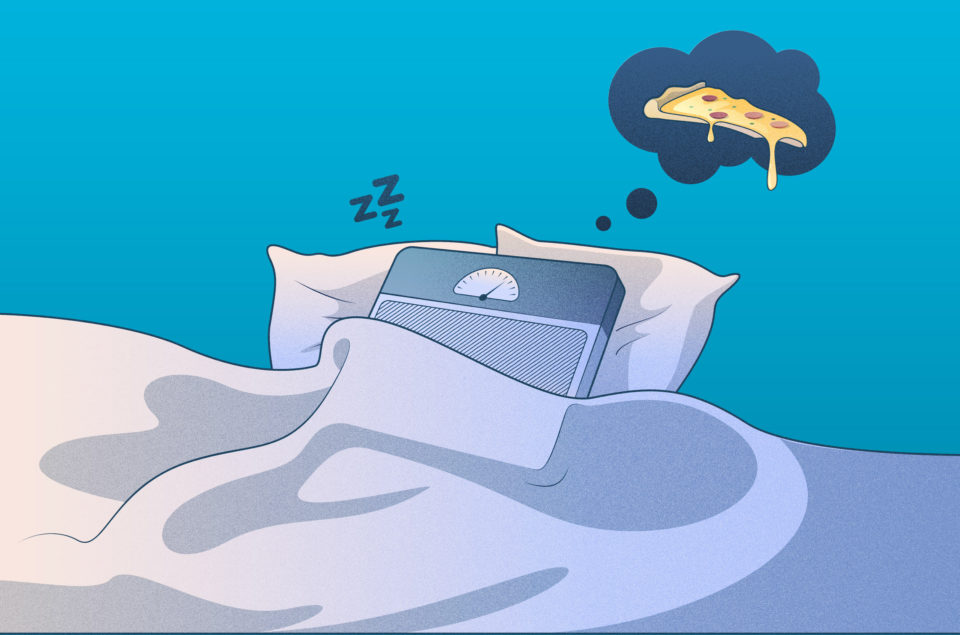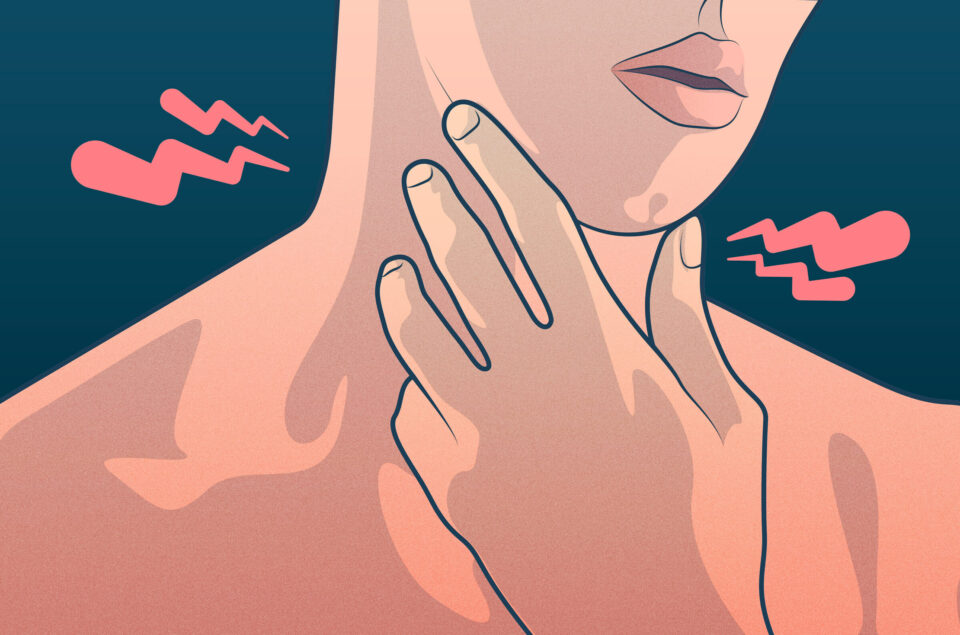Menopause can be a challenging time for many women (and dare we say their loved ones?). As if hot flashes and mood swings weren’t enough, many women also experience sleep problems which further increase the risk of psychological distress.
So what is a menopausal woman to do? Before preparing for total misery until the hormonal storm has passed, we’ve got some natural ways for you to improve your sleep and quality of life through this significant time.
In this article, we cover:
Menopause and sleep problems: how does menopause impact sleep?
Sleep disorders are not as frequently associated with perimenopause, the time around and during menopause, as other symptoms. But they are quite common and affect 40-60% of menopausal women.
Sleep problems often begin during the time before menopause, the premenopause, where estrogen and progesterone levels start to fluctuate and menstrual periods become irregular.
And it’s this hormonal change that experts believe is to blame for sleep disruptions and insomnia during perimenopause – for different reasons:
- Hot flashes – the most notorious symptom of menopause and the biggest culprit of disrupted sleep.
- Quality of life – Potential physical discomforts affect the overall quality of life and can lead to psychological distress – which significantly impacts sleep as well.
- Sleep apnea – where breathing frequently stops while you sleep, occurs more frequently in menopausal women, sometimes accompanied by Restless legs syndrome (RLS).
This impact on sleep often lasts throughout the menopausal transition and after menopause. The onset and duration of perimenopause and menopause varies among women, but the first signs of hormonal change typically begin three to five years before actual menopause. For some women, even a decade prior.
Why can’t I sleep at night? – Insomnia and menopause
Insomnia is a serious sleep disorder defined by recurring difficulty falling or staying asleep. Insomnia is more prevalent in women during menopause, and it’s thought to be caused by fluctuating hormones, particularly estrogen and progesterone, which can affect serotonin levels in the brain and disrupt sleep patterns.
Although more research is needed in this area, other factors are also believed to cause insomnia in menopausal women:
- Psychological distress: Menopause increases nighttime cortisol (stress hormone) levels that have been shown to spike just after a hot flash. The increased feeling of anxiety or alertness often makes sleep difficult. In addition, menopause comes at a time in a woman’s life where she is often very busy with managing her career, personal life, children and health. The physical discomforts associated with menopause such as aging, mood swings, weight gain, vaginal dryness and night sweats along with the idea of growing older may be difficult or depressing for some women, which is likely to keep them tossing and turning at night.
- Diet: a study of postmenopausal women’s carbohydrate intake and sleep showed that the risk of insomnia is higher for menopausal women with a high-GI (highly processed and ‘white’ carbohydrates) and sugary diet than those with diets low on sugar and high on whole grains, fruits and vegetables. Researchers believe that the rapid spike followed by a crash of blood sugar levels causes frequent awakenings during sleep.
What causes night sweats and hot flashes in menopause?
Their exact cause has yet to be fully understood, but night sweats and hot flashes are believed to be the result of the hormonal changes affecting the hypothalamus, your body’s ‘thermostat’ that regulates body temperature. Hot flashes occur when your hypothalamus (mistakenly) senses that you are too warm and starts a cooling process. Your glands release other hormones as compensation for a decrease in estrogen which tampers with your brain’s ability to regulate and sense temperature correctly.
The familiar red flush happens because blood vessels in the skin open up to release excess heat. Sometimes, perspiration, or sweating, is part of the cooling process too, and it can be quite severe at night (we’re talking drenched bath towels!).
Hot flashes come on suddenly, last for a few minutes and occur several times during the day AND night. They are the most common symptoms faced by around 75% of American menopausal women.
Why hot flashes are more intense at night
If you feel that hot flashes are more intense during the night, you are probably right. There are several reasons for your inner thermostat to seem more out of whack at night:
- Estrogen levels fluctuate throughout the day and night, but these hormonal spikes happen more frequently at night for some women than others.
- The effects could also seem worse at night because when you’re asleep, you may not notice an episode coming on, causing that uncomfortable wake up right as the hot flash and night sweats are at their worst.
- Your diet may also contribute to more severe hot flashes. Caffeine, alcohol, spicy foods, sugary foods and high-GI foods (‘white’ carbohydrates) are known to naturally increase your body temperature and intensify hot flashes at night.
- Certain medications consumed in the evening may also aggravate hot flashes.
- Hot flashes may feel more intense because your body is in fact too warm. High room temperatures, synthetic bedding or clothing and heavy blankets contribute to overheating.
- Stress is also linked to hot flashes. Ironically, worrying about how to cope with night sweats and awakenings at bedtime may intensify these episodes.
Snoring and sleep apnea in women in menopause
Fluctuating hormones also affect women’s muscle tone and fat deposits. A declining supply of estrogen and progesterone relaxes the muscle tone in the throat around the airways. Her neck circumference is also likely to increase from redistributed fat deposits or weight gain. This puts menopausal women at greater risk of developing obstructive sleep apnea (OSA) compared to younger women.
Sleep apnea is characterized by recurring interruptions in breathing and sleep, and if left undiagnosed and untreated, may lead to higher risk of stroke, heart attack, and diabetes (among other conditions).
Any obstruction to the airways also increases snoring which is a common, yet not always present, symptom of sleep apnea. Daytime sleepiness and restless leg syndrome are also associated with sleep apnea.
Menopause and restless leg syndrome
For some women, menopause can cause achy legs at night, referred to as restless leg syndrome (RLS). Women in general, especially pregnant and menopausal, are at higher risk of RLS because of the changes in reproductive hormones that they experience.
Smooth and purposeful muscle activity is communicated through the neurotransmitters dopamine and glutamate in the central nervous system. The changes in estrogen along with low levels of iron, which is typical for women, influence dopamine and glutamate and cause a dysfunction in this chemical transmission.
The result is an irresistible urge to move the legs. This urge is often accompanied by a tingling or burning sensation in the legs. RLS can make it difficult to fall asleep and stay asleep. RLS has also been proven to often coexist with other disorders such as depression, anxiety and migraine – something menopausal women are particularly prone to.
3 Natural remedies for sleep problems during menopause
Menopause symptoms will vary in duration and severity from woman to woman. What’s important to remember is that they are all natural and something most women must endure. However, we understand how prolonged or severe symptoms can tamper with your sleep and make you feel miserable.
Certain lifestyle changes can often alleviate symptoms and get you a good night’s sleep before, during and after menopause.
1. Good sleep hygiene:
You can’t control your sleep, but you can control your sleep environment.
- Make your bedroom comfortably cool, clutter free, dark and quiet.
- Follow a regular sleep schedule. Go to bed and wake up at the same time every day.
- Find a bedtime routine that works for you. We love reading a book, taking a warm shower or bath, or listening to soothing ambience, sleep guides or stories.
- Avoid napping too late in the day if possible.
- Late night screen watching may delay your ability to fall asleep because the light suppresses melatonin – the hormone needed to fall asleep.
- Good sleep hygiene also includes your daytime habits. Exercise regularly. A little goes a long way, so brisk walks, using the stairs, gardening, cleaning, etc… all counts!
- Get exposed to natural daylight to keep your circadian rhythm as balanced as possible.
- Several remedies might help if snoring is an issue. Consider trying a mouth guard to wear at night, change your pillow height for the right sleep position, and add moisture to the air using humidifiers.
2. Diet:
It’s about eating healthier foods, but especially about avoiding foods that trigger or worsen symptoms.
- Alcohol (in any amount, any time of the day) and large meals close to bedtime make it harder to stay asleep.
- Limit caffeine late in the day. Caffeine works by blocking your adenosine receptors (your brain’s ability to feel hormonal sleep pressure) and can impact your sleep 6+ hours after consuming it.
- A healthy, balanced diet lowers the risk of developing insomnia (as well as heart disease, strokes, cancer, dementia and much more). Aim to eat whole grains, fruits and vegetables, and plantbased and lean proteins instead of processed grains and high-sugar foods.
- Eat your last meal before bedtime at least 3-4 hours prior. If you need a snack, aim for plant based snacks (humus, fruits, seeds, nuts).
- Some herbal and dietary supplements such as melatonin or valerian root also act as natural sleep aids. Make sure to speak to your physician about how these might interact with prescriptions drugs you are taking.
3. Non-hormonal treatment options:
Finding remedies for menopause symptoms is really about improving your quality of life and finding ways to manage the discomforts of menopause.
If you feel that the above lifestyle changes fail to improve your sleep, it may be time to seek professional help for other approaches:
- Yoga, meditations and aromatherapy are gentle, yet effective ways to improve your overall physical health.
- Cognitive behavioral therapy targets negative thoughts and behaviors contributing to insomnia, and has proven very effective in managing symptoms.
- Hypnosis and acupuncture can also help redirect focus away from inhibiting discomforts.
Hormonal treatment options:
There are hormonal options out there, but make sure to speak to your physician about these as you may not qualify medically for all of them.
- Hormone therapy (HT) and Prescription medications. Hormone therapy is often used when symptoms are very severe. HT boosts your hormone levels and relieves some of the symptoms of menopause which makes day to day life possible.
Sleep better during menopause: what to remember
It’s clear that menopause-related sleep problems are a serious issue that can have a significant impact on your daily life. The best way to handle it is to recognize the causes and find solutions that can help you get a good night’s sleep—whether that’s through lifestyle changes, medical treatments, or a combination of both.
Taking natural steps to get better sleep can make a world of difference! With the right approach, you can manage your insomnia and get back to living the life you want.
